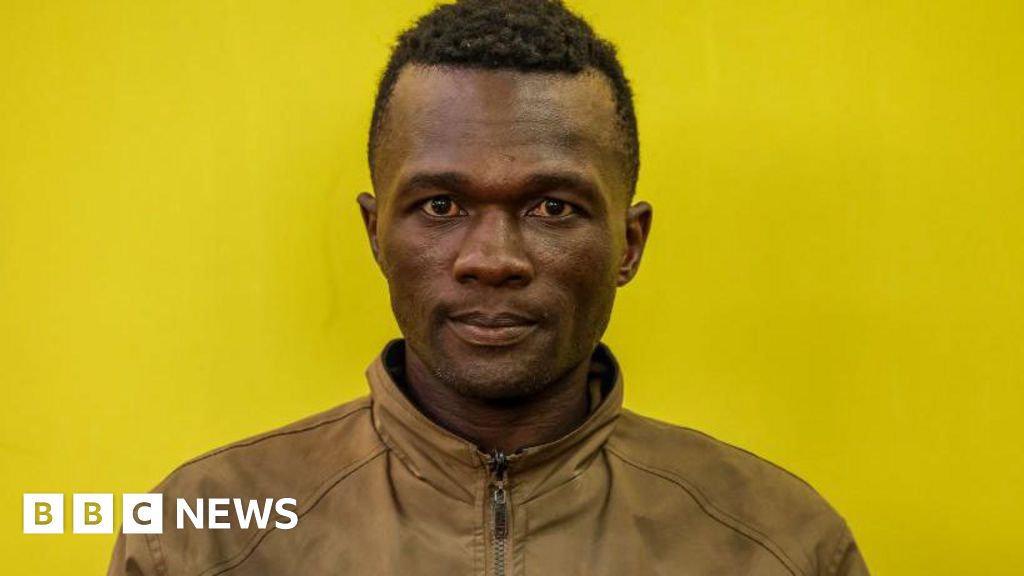Kenyan police have offered a reward of 1 million shillings ($7,700; £5,700) for information leading to the arrest of suspected serial killer Collins Jumaisi Khalusha, more than a year after he escaped from their custody.
Khalusha was the prime suspect in the murder of more than 40 women whose mutilated bodies were discovered in a disused quarry that became a dumpsite in the capital, Nairobi.
Shortly after his arrest, he escaped from custody, along with 12 others, after reportedly cutting through a wire mesh roof and scaling a perimeter wall.
It caused outrage, and police are facing a renewed backlash over their failure to hunt down Khalusha more than a year later.
Many Kenyans have questioned how he could have escaped on 20 August 2024 from what is regarded as one of the most secure police stations, located near the US embassy and the UN offices in the capital.
Khalid Hussein, an activist who has been following the case closely, told the BBC that the police were “not serious” about solving the murders of the women they previously identified as being aged between 18 and 30.
He alleged that some bodies were still inside the quarry pits, and “rotting”.
Mr Hussein believes the Directorate of Criminal Investigations (DCI) announced the reward in response to a documentary by the local Citizen TV station about the police’s inaction.
“So as usual they feel embarrassed, they think they should do something and they react and they say 1 million shillings reward. Absolutely useless,” the activist said.
Contacted by the BBC, police spokesman Michael Muchiri referred queries to the DCI, but added that it had previously addressed “the complexities of that matter”, and was “on track to resolving it.”
The DCI said in a post on X that the 1 million shillings reward would be given to “anyone who provides credible information that will assist in the re-arrest of the suspect”.
Police also offered a reward last year, but did not specify the amount.
Several policemen were arrested last year for allegedly aiding Khalusha’s escape, but they were later released on bail.
Many Kenyans questioned how officers had failed to detect that bodies were being left in a quarry around 100m (109 yards) from a police station.
Khalusha had reportedly confessed to his crimes but his lawyer later told a court that he had been tortured.
Speaking to the BBC at the time, the lawyer, John Maina Ndegwa, said the suspect had been “strangled to confess. You could tell he was in distress, terrified and in anguish.”
At the time of Khalusha’s arrest, DCI chief Mohamed Amin said: “It is crystallising that we are dealing with a serial killer, a psychopathic serial killer who has no respect for human life, who has no respect and dignity.”
He had been set to face murder charges in court, just before his disappearance.
Last month, Interior Minister Kipchumba Murkomen described the escape as being “regrettable” and a “sad story”.
“I’m really hoping that he can be arrested,” he said.

